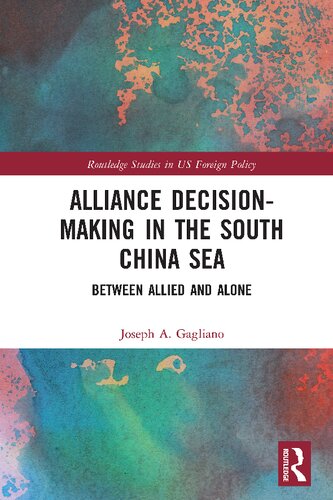

Most ebook files are in PDF format, so you can easily read them using various software such as Foxit Reader or directly on the Google Chrome browser.
Some ebook files are released by publishers in other formats such as .awz, .mobi, .epub, .fb2, etc. You may need to install specific software to read these formats on mobile/PC, such as Calibre.
Please read the tutorial at this link: https://ebookbell.com/faq
We offer FREE conversion to the popular formats you request; however, this may take some time. Therefore, right after payment, please email us, and we will try to provide the service as quickly as possible.
For some exceptional file formats or broken links (if any), please refrain from opening any disputes. Instead, email us first, and we will try to assist within a maximum of 6 hours.
EbookBell Team

4.1
20 reviewsThe combination of rising Chinese power and longstanding territorial disputes has drawn increased attention and threats to the Asia-Pacific region. Five smaller powers contest Beijing’s claims; Malaysia, the Philippines, Vietnam, Brunei and Indonesia, with the United States viewed as the most likely counterbalance to coercive behavior towards them. However, only one of these five states - the Philippines -has maintained a guarantee of protection through alliance with the US. What factors have influenced state decisions to form security relationships with Washington, and what does the evolution of these factors portend for future security relationships in the South China Sea?
Using research on U.S. policy preferences based on recently declassified material, this book produces conclusions previously inaccessible beyond classified forums. The author surveys recent alliance theory developments to examine relationships between claimant states and the US, explores historical bilateral relations and considers the future of regional security relationships.
This book contributes to the fields of security studies, foreign policy and international relations and expands beyond traditional concepts of defense alliances to explore security cooperation along a spectrum from allied to aligned to non-aligned.